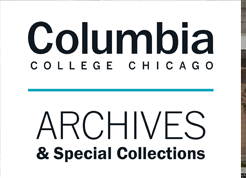

Files
Loading...
Description
Nurrah Aishah Muhammad (she/hers) was born in Detroit, Michigan. As a baby, her family moved to Chicago, Illinois, where she was raised for the majority of her life. She attended Muhammad university of Islam, where she would go on to participate in extracurriculars that focused heavily on engineering and animation. During her time in high school, she would go on to participate in computer science internships at places like the University of Illinois at Chicago as well as the Field Museum. Following her graduation, she decided to shift her focus solely on art, majoring in animation and minoring in filmmaking at Columbia College Chicago. Muhammad currently resides with her parents in the suburbs of Chicago and intends to graduate in 2024.
Publication Date
Fall 2020
Publisher
Columbia College Chicago
City
Chicago
Keywords
COVID-19, pandemic, Chicago, Illinois, United States, coronavirus
Creative Commons License

This work is licensed under a Creative Commons Attribution-NonCommercial-No Derivative Works 4.0 International License.
Disciplines
Arts and Humanities | Oral History | Public History | Social and Behavioral Sciences
Recommended Citation
Antoine, Kelso, "Interview with Nurrah Muhammad" (2020). Capturing Quarantine Oral Histories. 29.
https://digitalcommons.colum.edu/capturingquarantine/29



Comments
Nurrah Muhammad begins the interview by giving us insight into her earliest memories, eating peas. She goes on to talk about some of the rules her parents had for her being raised in a Muslim household. She describes a day in her life going to a Muslim military school and the way that “sheltered” environment went on to shape who she is and the way she interacts with people. She goes on to recount what it was like growing up in modern day Chicago as a part of Gen Z and her experience living in a predominantly black neighborhood and witnessing instances of police brutality and harassment. Muhammad explains her interests in engineering as well as how she decided to make the full shift to animation and film when deciding her major at Columbia. Being only 16 years old, Muhammad describes what it’s like to have friends in high school and college as well as the expectations she had when coming to Columbia. She gives us insight into the separation of genders at her school and how that went on to affect her social life in term of the kind of people she felt more comfortable being around. Muhammad delves into her experience with the pandemic and describes the forming and rediscovery of friendships she’s had during her time in quarantine. She recalls when she first heard word of the pandemic and her nonchalant reaction to it, assuming that it was something that would not have much of an impact on her life at the time. She further explains the role she believes the pandemic and isolation have played in bringing more awareness to social issues such as the Black Lives Matter movement and things she’s been witnessing all throughout her life growing up in Chicago. She describes what it was like being around so many people who played a part in the recent election and not being able to cast a vote because of her age, despite holding strong political opinions. Muhammad describes the activities that occupy her time in quarantine; art, taking care of stray kittens, shooting bow and arrows, and her newfound appreciation for nature and plants in her space. She explains her feelings and expectations for the future, as well as providing insight as to how she thinks universities, specifically Columbia, should be handling courses during the pandemic. Concluding the interview, Muhammad touches on the importance of mental health now more than ever, as well as her excitement for the pandemic to end as well as to see how the pandemic has changed the world and the way people interact with one another.
Conducted in fall 2020 by an Oral History: The Art of the Interview student, this interview with a fellow student in the class reflects on the pandemic and how it impacted their life. The interview is conducted based on the life history approach to oral history.